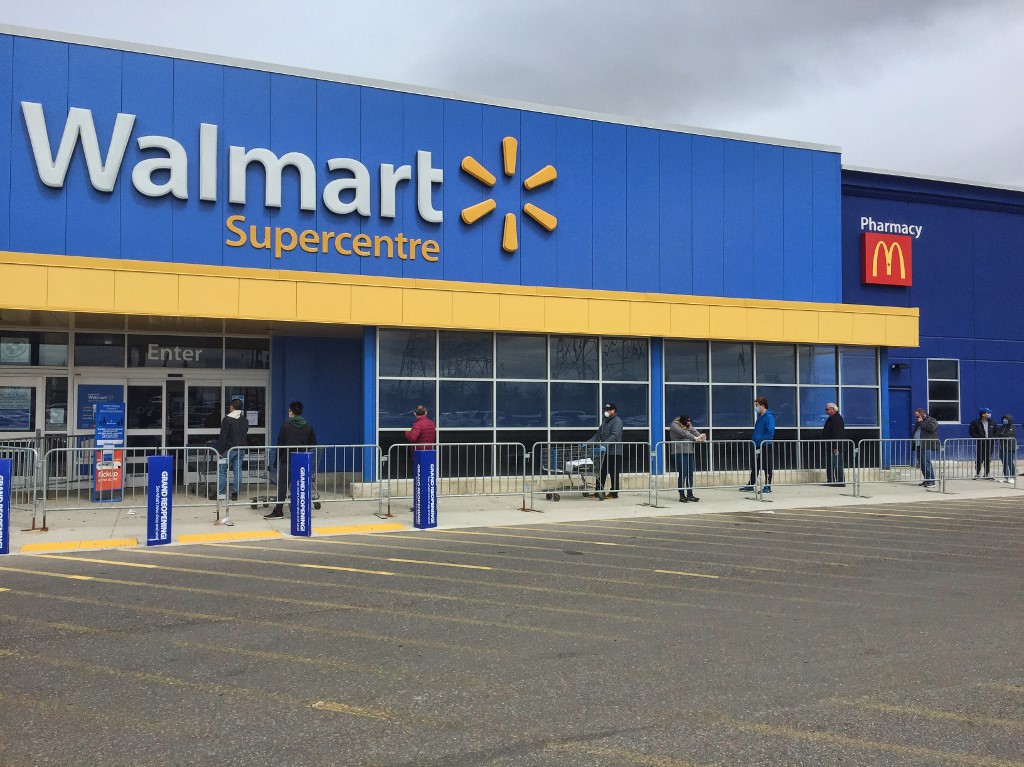(ATF) The wheeling and dealing in the Indian retail sector doesn’t seem to be slowing down anytime soon.
Following a flurry of recent megadeals by Reliance Industries including the $20 billion sale of a stake in its retail arm to Amazon.com, yet another multibillion-dollar foreign investment transaction appears in the making.
Walmart is in discussions with Tata Group to buy the proposed super app of the salt-to-software conglomerate, local newspaper Mint reported, citing people aware of the development. The “super app”, it wrote, aims to create a digital services behemoth offering a wide range of products in the retail space.
The “investment could touch $20bn-$25bn eventually for a large stake in the proposed super app to be hosted under a Tata Sons subsidiary,” Mint reported.
A huge market
Neither Walmart nor the Tata Group has commented on the reports. If the deal goes through, it will top Walmart’s $16bn investment for 77% of Flipkart in May 2018.
But “even if it is speculation, the reports also reinforce the fact that the Indian retail market has huge potential and global investors are looking at it with a strategic and long-term view of growing the market,” Ankur Bisen, head of consumer and retail practice at Technopak, told ATF. Technopak claims to be India’s leading retail management consulting firm.
Indian retail is a huge market that is still largely untapped, Ankur said. And, despite the fact that the two biggest retailers, Walmart and Amazon, are already invested in the country, there remains a huge amount of strategic and long-term interest.
Second leg of consolidation
Experts say retail was changing even before Covid-19 turned the sector on its head. The crisis has nudged both modern and traditional retailers to look at their growth strategy and business models. It’s also heightened the urgency to adopt digitalisation, e-commerce and regulations for all stakeholders in the retail value chain.
Until now modern retail has been viewed in terms of brick-and-mortar and e-retail. But the Technopak report said the two would convergence, and digital commerce will become central to future growth.
Pure brick-and-mortar retailers must adopt digital technologies to survive and pure e-retailers will have to appreciate the importance of brick-and-mortar assets and outreach, experts added.
READ MORE: Reliance offers India’s growth story to its strategic and tactical investors
While the Tata-Walmart deal “could be in response to the moves Reliance Industries has been making over the past year, we see this as the second leg of consolidation in the sector, particularly following Reliance’s acquisition of the Future Group,” Gehan Wanduragala, principal at UK and India-based Kanvic Consulting told ATF.
Earlier this month Reliance Industries offered to sell a roughly $20 billion stake in Reliance Retail Ventures (RRVL) to Amazon.com, soon after acquiring India’s third-largest retail player the Future Group.
Later, in what appeared to be a virtual stampede by global investors to back a Reliance business, global private equity giant KKR said it will sink $755 million into RRVL to fuel expansion of “India’s fastest-growing retail business and its transformational new commerce model”.
Online-offline integration in the works
Tata Group, a $113 billion conglomerate, also has a significant presence in the country’s modern retailing sector with consumer products and services ranging from beverages to jewellery and resorts. Yet much of its retail operations have a fragmented web presence, which is why it needs an all-in-one e-commerce app, say experts.
“The coupling of Walmart-owned Indian e-retailer Flipkart’s online presence with Tata’s offline strength can potentially create the second major online-to-offline integrated retail entity in India,” said Wanduragala.
Reportedly, the super app, which is scheduled to be launched in India in December or January, will bring together Tata’s consumer business under one channel and offer a wide range of products.
It may also include Flipkart’s offerings from Walmart and the entire retail product franchise housed by the Tata group on one platform for retail customers. On the other hand, Flipkart could get to be powered by Tata’s offline heft, experts have predicted.
READ MORE: Tatas and Mistrys to split, but all eyes on the price
Compared with RRVL or Amazon, Tata Group has the largest franchise of its own branded products that are sold to retail customers. These include Tata Cliq, StarQuik, Tata Sky and Croma in its e-commerce platforms for retail products. It also dominates the brick-and-mortar space in retailing tea, coffee, water, salt, lentils, spices, ready-to-eat products, as well as apparel and fashion accessories such as watches, jewellery and eyewear.
“Walmart is the top retailer in the world, and the Tata Group is the top corporate house in India. When two leading entities like these join hands, it is bound to revolutionize not only the retail sector in India. But it may also stir global retail,” Rajiv Frank, founder of retail consultancy firm Brandtrotter, told ATF.
- With reporting by Mint
























